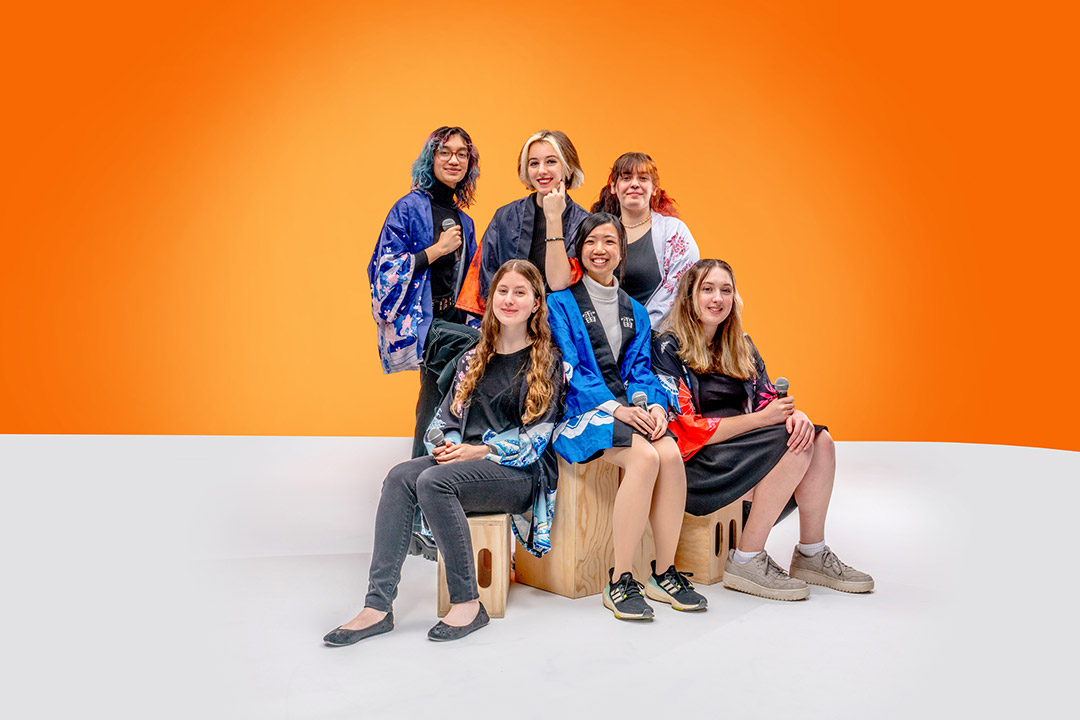10th anniversary concert promotes Japanese music

Scott Hamilton/RIT
Kaminari, an a cappella group focusing on Japanese music and culture, performs their 10th anniversary concert, ‘Raijin No Matsuri,’ April 13 in Ingle Auditorium.
One of seven a cappella groups at RIT, Kaminari and its 13 members aim to show how music transcends language and helps people discover and enjoy music they might not have explored on their own.
Kaminari, which means “thunder” in Japanese, is holding their 10th anniversary concert at 7 p.m. April 13 in Ingle Auditorium. Wadaiko, a Japanese taiko drumming group, and a small ensemble from the RIT Game Symphony Orchestra will also give performances. Admission is free and open to all.
“I understand very little of the literal meaning of our lyrics, but I do understand the meaning of all our songs,” says Kaminari President Aemilia Blais, a fourth-year computer science major from Smithfield, R.I. “If you only listen to music in English, you’re missing out on so many amazing songs. I hope that Kaminari is able to show people some great songs that they might not have heard before and encourage them to step outside their musical comfort zones.”
Some Kaminari members over the years have been of Japanese heritage, but the vast majority have not been. Several current members are studying Japanese through RIT classes or other programs. One member knows Japanese and helps others learn the meaning of their songs.
“This is super important for us because if the audience can’t understand the exact words we are saying, we still want them to be able to experience the feeling and meaning within the songs,” Blais said. “So to convey this meaning, we as the performers need to be able to understand it ourselves.”
She says the group works hard to find places to add choreography, dynamics, or other forms of emphasis within their arrangements to show the audience the meaning behind the songs so they can feel the music without necessarily understanding every word.
Blais uses color-coded documents with syllables to memorize and practice by listening to the original song.
“Learning music for Kaminari is not that different from learning music for an a cappella group that sings in English,” she said. “If you think about it, in most a cappella arrangements, the majority of the group isn’t singing words all the time. Instead, they’ll be singing syllables like ‘ooh,’ ‘da,’ and, ‘ah,’ which we do too. The only difference is that when there are words, ours are in Japanese.”
Kaminari this year made its second appearance in the International Championship of Collegiate A Cappella and plans to perform at the Buffalo Cherry Blossom Festival at 11:45 a.m. on April 27.









